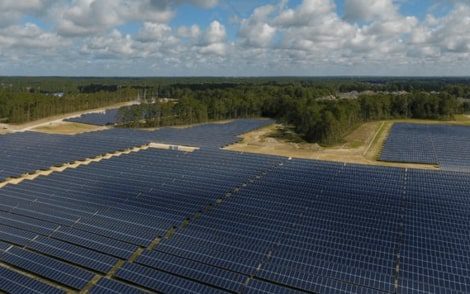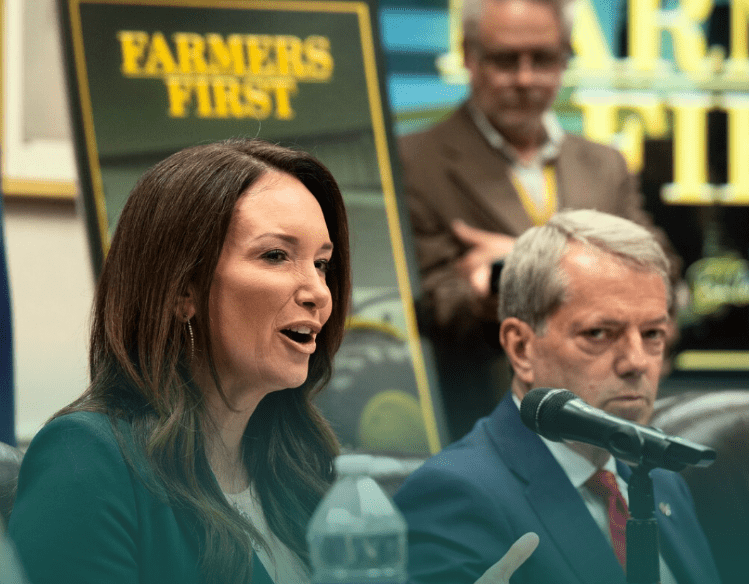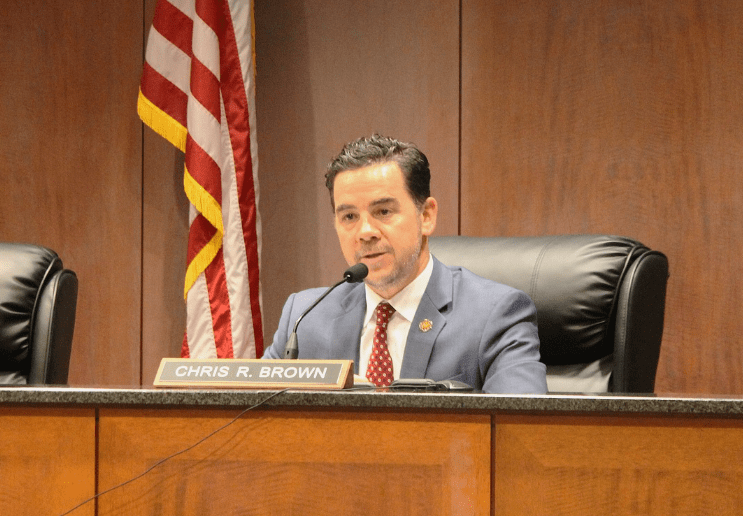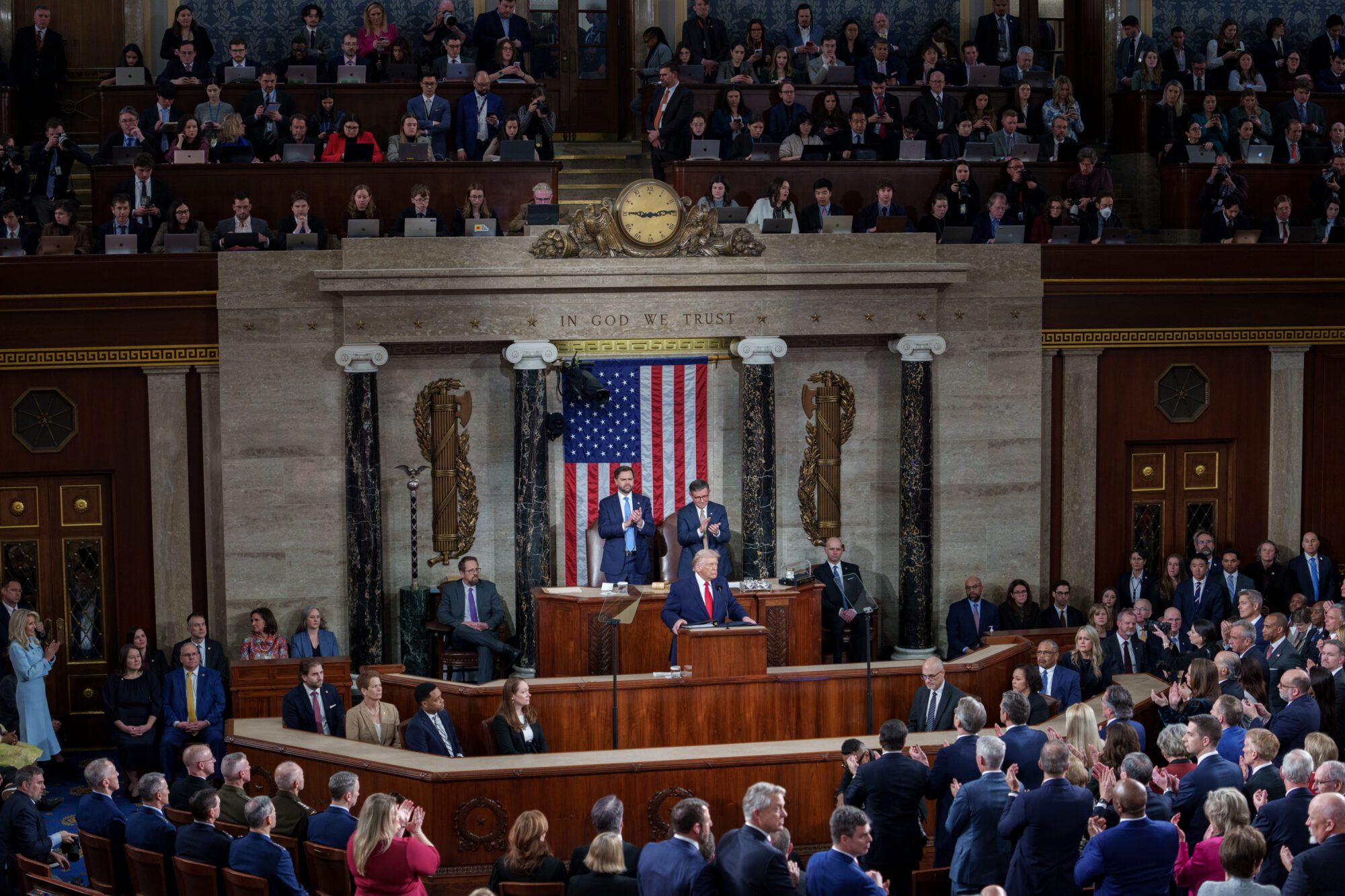
Silicon Ranch solar farm in Hattiesburg, Mississippi (Photo from Silicon Ranch website)
- President Trump said Wednesday, “We will not approve wind or farmer destroying Solar. The days of stupidity are over in the USA!!!”
Drive across the South in recent years and you are likely to see fields of solar panels in rural areas that once were reserved for agriculture. Much of that development has been funded, at least in part, by taxpayer subsidies handed down from the federal government as a way to promote “clean” or “green” energy production. That now appears to be changing.
In an effort to protect vital American farmland, the U.S. Department of Agriculture said this week that the federal agency will no longer allow taxpayer dollars to fund solar panels on productive farmland or allow solar panels manufactured by foreign adversaries to be used in USDA projects.
The agency said subsidized solar farms have made it more difficult for farmers to access farmland by making it more expensive and less available.

In a statement announcing the change in policy, U.S. Secretary of Agriculture Brooke Rollins said prime farmland should not be wasted and replaced with “green new deal” subsidized solar panels.
“It has been disheartening to see our beautiful farmland displaced by solar projects, especially in rural areas that have strong agricultural heritage. One of the largest barriers of entry for new and young farmers is access to land. Subsidized solar farms have made it more difficult for farmers to access farmland by making it more expensive and less available,” Rollins said.
Supportive of the action, President Donald Trump (R) took to Truth Social on Wednesday to claim, “Any State that has built and relied on WINDMILLS and SOLAR for power are seeing RECORD BREAKING INCREASES IN ELECTRICITY AND ENERGY COSTS. THE SCAM OF THE CENTURY! We will not approve wind or farmer destroying Solar. The days of stupidity are over in the USA!!!”

The USDA’s change in policy is specifically targeted to rapidly eliminating market distortions and the costs imposed on taxpayers by reducing energy subsidies. The agency said the change builds on the repeal of and modifications to wind, solar, and other “green” energy tax credits in the One Big Beautiful Bill Act (OBBBA). USDA also noted that the agency is determined to end taxpayer support for unaffordable and unreliable “green” energy sources while ensuring the supply chain consists of American products and manufacturing.
On Tuesday, the USDA said the agency was immediately implementing the following programmatic actions:
- For the USDA Rural Development Business and Industry (B&I) Guaranteed Loan Program wind and solar projects are not eligible.
- For the USDA Rural Development Rural Energy for America Program Guaranteed Loan Program (REAP Guaranteed Loan Program), USDA will ensure that American farmers, ranchers and producers utilizing wind and solar energy sources will install units that are right-sized for their facilities. If project applications include ground mount solar photovoltaic systems larger than 50kW or ground mount solar photovoltaic systems that cannot document historical energy usage, they will no longer be eligible for the REAP Guaranteed Loan Program, and priority points will no longer be given for REAP grants.
Responses from Mississippi
Dane Maxwell, State Director for USDA Rural Development in Mississippi appointed by President Trump, said the agency is committed to delivering critical resources to rural communities in Mississippi, particularly those that assist agricultural producers.
“My goal is to continue supporting our farmers and ranchers while also responsibly administering our programs,” Maxwell, a former Public Service Commissioner, said.
The state USDA office said the agency has not released state-specific impacts or estimated acres or producers affected. They noted that the priority points system is a scoring mechanism for program applications, not a measure of land use.

Maxwell’s office noted that projects that were already awarded will continue to receive funding under the terms in place at the time of their award.
Mississippi Commissioner of Agriculture and Commerce Andy Gipson (R) told Magnolia Tribune he fully supports Secretary Rollins and the Trump administration’s plan to end taxpayer funding through USDA the “green” projects that impact viable farmlands.
“This move is a key part of the USDA’s plan to strengthen farm security and food supply throughout the United States announced in July,” Gipson said. “Over the next couple of years, the OBBB Act signed by President Trump will also end Biden-era Green New Scam subsidies.”
According to a December 2024 report from the USDA, data showed that more than 30,000 acres of Mississippi agricultural land is held by foreign interests involved in solar projects from countries including the Cayman Islands, Portugal, Australia, Canada, Italy and United Kingdom. Of that acreage, about 83 percent was acquired in the past five years of data.
In total, the report noted that foreign interests hold nearly 1 million acres in Mississippi.

Gipson said he has been concerned about this for quite some time. He appeared last August at the Public Service Commission to speak on the issue.
“This is also an issue I have been very vocal about for many years, including recently testifying at the PSC’s hearing in August 2024 regarding the challenges solar and other alternative energy projects pose to one of our most valuable assets, our Mississippi farmland,” Gipson said. “In addition to this, research shows that according to USDA, the most recent increase in foreign ownership of farmland has been driven by solar projects which have been subsidized in a variety of ways.”
Gipson added that farmland creates the food that powers lives, saying that “it does us little good to trade food security for energy security.”
“We must have both and we can have both,” Gipson said. “Government incentives that encourage the reduction of food security to promote solar power are bad policy and I am thankful the Trump Administration is taking these steps that return the primacy of farming and food production.”
To Northern District Public Service Commissioner Chris Brown (R), the USDA’s policy shift to pause federal subsidies for “green” projects on prime farmland is more than a regulatory adjustment, it is a statement of purpose.
“It is a recommitment to two core American priorities: preserving our agricultural strength and securing our energy future,” Brown told Magnolia Tribune. “As Chair of the Mississippi Public Service Commission, I strongly support an approach to energy rooted in national security, economic strength, and state-led innovation. Secretary Rollins’ decision aligns with that vision by reinforcing the idea that energy policy must not come at the expense of the very land that feeds and sustains this nation.”
Brown said Rollins was right to ensure that farmlands are not sacrificed in the name of poorly planned subsidies or foreign supply chains, adding that energy leadership means producing more American energy, on American soil, using American labor and materials. In Mississippi, the PSC Commissioner said he is focused on providing reliable energy that does not impede quality of life.

“Our position in Mississippi is not anti-solar. We recognize the value of solar for private use, whether by homeowners, farmers, or businesses that choose to invest in panels for their own energy needs. But the future of energy is not going to be built on large footprints of unreliable sources that take prime farmland out of production and raise costs for families. It will be built on resources that are dependable, affordable, and American-made,” Brown said. “In Mississippi, we are focused on energy sources that are 100% reliable, 100% of the time, such as nuclear and natural gas. Families and businesses cannot afford to depend on intermittent sources that fail when the sun doesn’t shine, or the wind doesn’t blow. Reliability is not optional; it is the foundation of economic growth, national security, and quality of life.”
Brown added that the PSC in Mississippi supports clean energy but not mandates that ignore economic reality.










